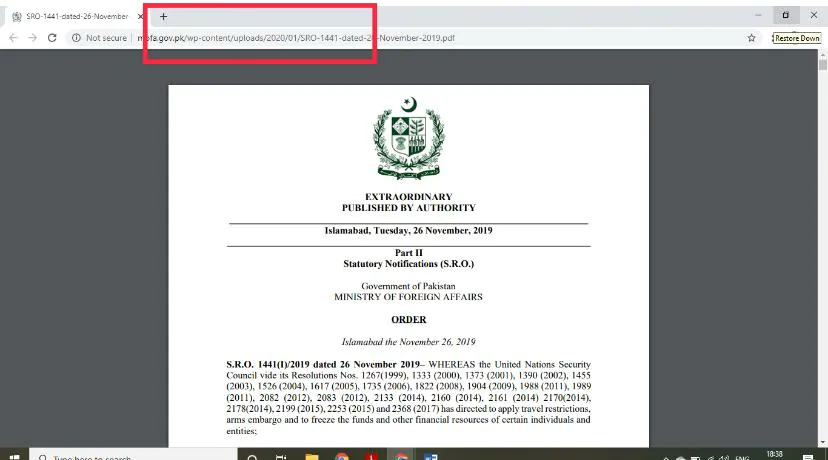
SOURCE: NEWS18
India has threatened to expose Pakistan at the Financial Action Task Force (FATF) for misleading the international community on terrorists Dawood Ibrahim and Zakiur Rehman Lakhvi.
Following up on their claim that Pakistan’s 2015 and 2019 statutory resolution mentioning Ibrahim, India’s most-wanted terrorist, were “back-dated lies,” Indian agencies have used technology to establish that all these documents of 2015 and 2019 were uploaded in 2020 and the move is only an attempt by the neighbouring nation to save face. “All our URL search shows the documents did not exist before 2020. They were all uploaded in 2020,” an official said.
Pakistan in its statutory resolution of August 18, 2020, had for the first time accepted that Ibrahim, the perpetrator of the 1993 Mumbai blasts, lived in Karachi, Pakistan.
However, a Pakistan Foreign Office statement called this routine. “The consolidated SROs are issued periodically as a routine matter. Similar SROs have been issued by the Ministry of Foreign Affairs in the past, as per statutory requirements and to meet our international obligations. Last such SROs were issued in 2019,” the Pakistan Foreign Ministry said in a said.
It added, “The assertions made by some sections of the Indian media, as to Pakistan admitting to the presence of certain listed individuals on its territory, based on the information contained in the SRO, is baseless and misleading. “
However, Indian agencies say that reverse search of the Ministry of Foreign Affairs’ URL conclusively exposes the misleading claim of Pakistan.
“These are all MOFA URLs. How will they deny this?” an official said. He, however, conceded that Pakistan can argue to save face that resolutions were passed in 2015 and 2019, but put on the website later.
To counter any such claim, Indian agencies point out that Interpol, UN and other international organisation links that the statutory resolution shares also exposes Pakistan. For example, the SRO from December 22, 2015, to January 16, 2020, had a reference to ‘2020/01’ in their URLs. “If a resolution was passed in 2015, how can it have a link of 2020 in it for reference,” another said.






